![]()
The girl with the sunglasses has been one of my favorite images since the day I took it. It’s very photo 1 and is literally from my first semester of art school. Taken with my first camera a Canon EOS 630 I bought for class, I shot it on Kodak Tri-X and printed it on Ilford Multigrade Glossy Fiber Base paper.
It reminds me on catching lightning in a bottle and having no clue how to handle it. Photographically I needed to work on focus, composition, and exposure… or so I thought until I discovered Lillian Bassman’s work. Personally, I had a lot more to work on. Surprisingly I didn’t treat print like I treated the girl, but that discussion is better left on someone else’s’ couch.
Now I keep saying print because that is all that’s left. The print has somehow survived through many purges of previous work, moves, jealous girlfriends, and other relationships, but the negative is long gone. I can’t go back to the negative and reprint it, and I can’t go back to that time and start over.
Photographically as well as personally, it is a snapshot of my twenty-some-year-old self. How I saw, captured and printed the world around me.
As my forty-some-year-old self is at a point of re-evaluation in his life, I have been reprinting some of my older work. So of course, I printed the scanned file of her on Hahnemühle FineArt Baryta, one of my favorite go-to papers. I love the drama, the Baryta glow, and that classic black and white feel. She just comes alive and it’s hard to distinguish if I’m talking about the paper or the girl. With the Hahnemühle Fine Art Baryta, I’m back in the car carelessly snapping proof that once again she had stolen my sunglasses after she applied her red red lips.
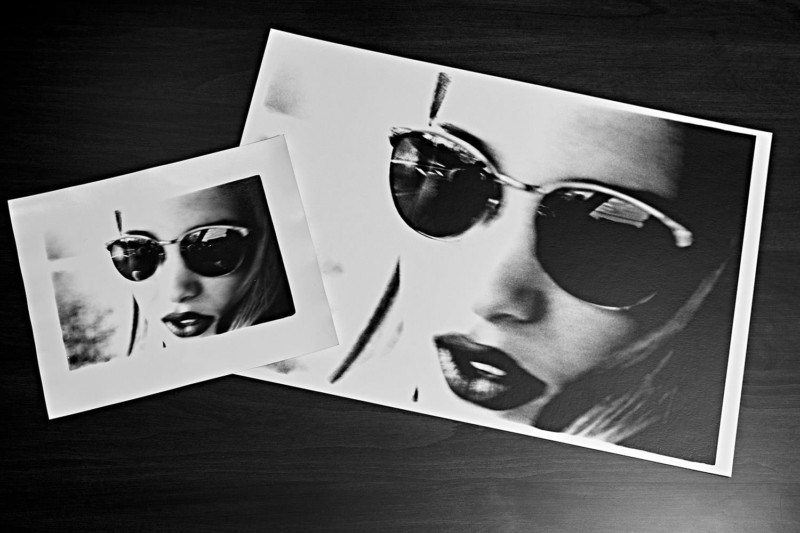
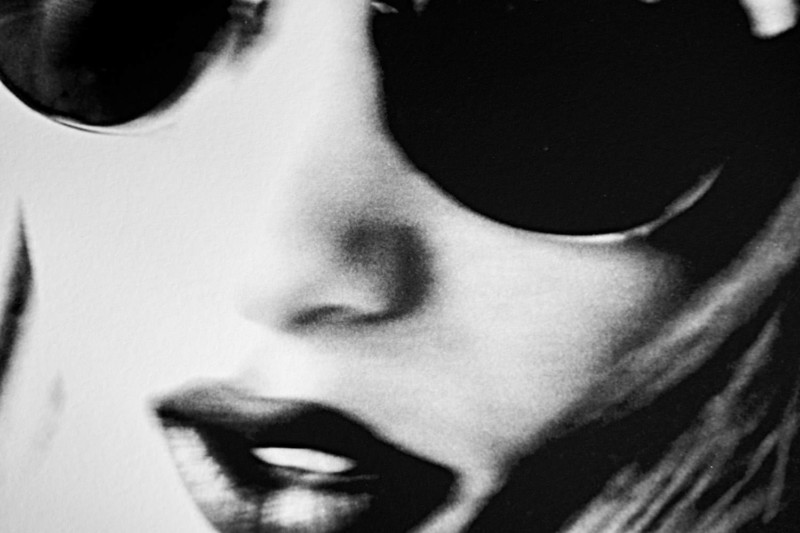
So for twenty-some years, I’ve had this glossy memory, and it was time to try something different. I test printed it on several matte fine art papers and chose the new Hahnemühle Natural Line Agave for my final presentation. When you change the paper you change the mood.
Paper is a photographer’s voice. Do you want to soothe? Stun? Scream? Suggest? The right paper will convey these things and the Hahnemühle Natural Line Agave did not disappoint. With that glossy barrier removed, I couldn’t help falling into the girl in the image. The memories of her came flooding back and I was reminded of the person she inspired me to be and the lessons I learned after she was gone.
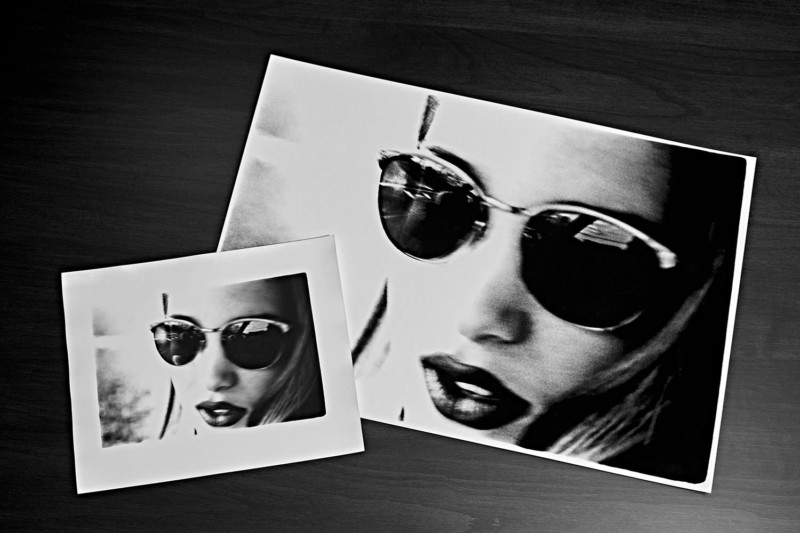
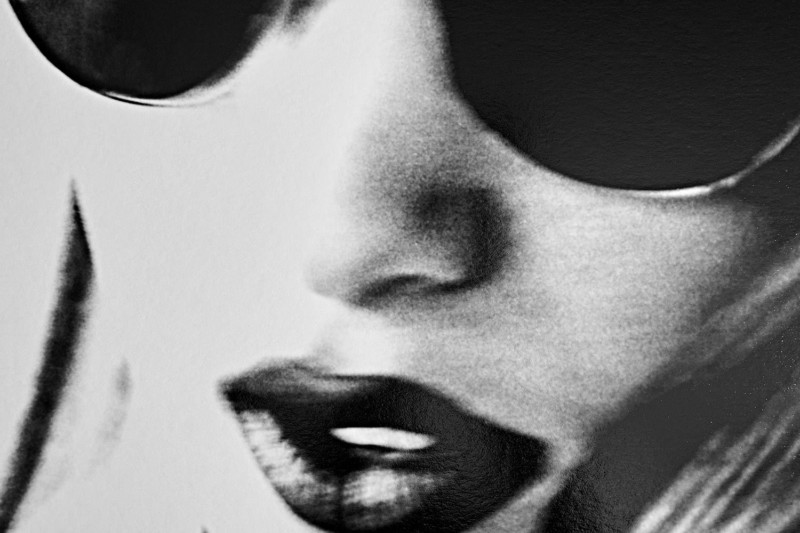
So, which is the “best paper” to print on? I hear that question from so many photographers and my response has always been “What does your heart tell you to do? What do you want to say? What is your story? And for this image, I need to contradict myself. The best choice is the Hahnemühle Fine Art Baryta.
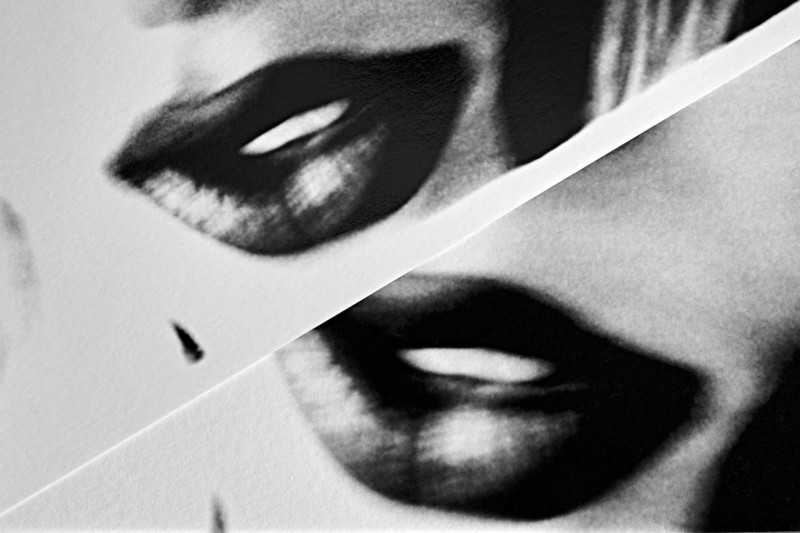
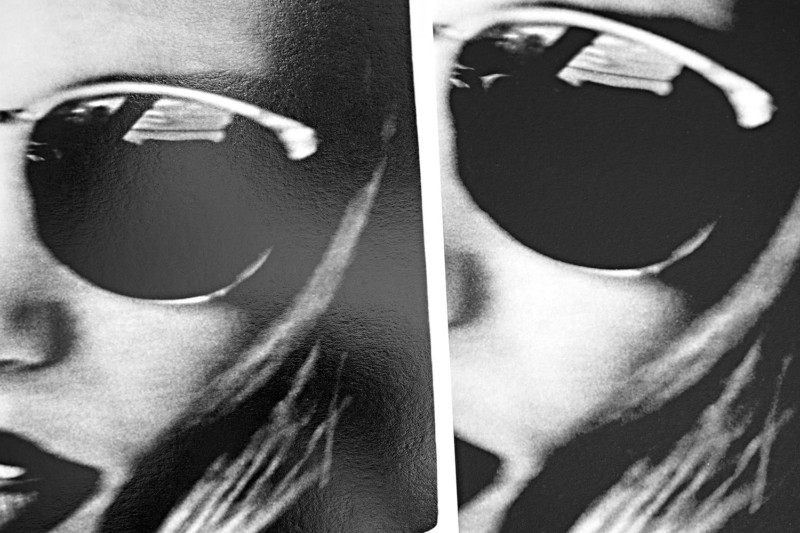
Hahnemühle Natural Line Agave is an excellent paper, it reopens old wounds and precious memories that only I experienced. If I printed her on it, other viewers would not have the same experience because they weren’t there years ago. They might have had their own girl with the sunglasses, but it is a leap that they would make a connection.
The best choice is the Hahnemühle Fine Art Baryta. It perfectly portrays that magic moment in which she is a photograph. She is eternal. It’s no longer my memory from decades ago. It is a frozen moment timelessly encapsulated in a Baryta glow.
![]()
For that moment, everything was perfect and is better left viewed photographically undescribed personally.
About the author: John Granata has a long 28 year storied history with photography and currently teaches printing classes at Richard Strongberg’s Chicago Photography Classes in Chicago, Illinois. The opinions expressed in this article are solely those of the authors. He presents a unique argument with an odd mix of technical and emotional reasons why printing is essential to every photographer and has a strong passion to create prints that speak to the viewer. Past projects include photographs taken and processed with that “John” look with several unique alternative printing methods and materials. He has a website that surely needs to be updated and possibly reworked. Currently, he is on hiatus from actively working photographically but is telling stories about past projects in order to rediscover his vision for new ones.

